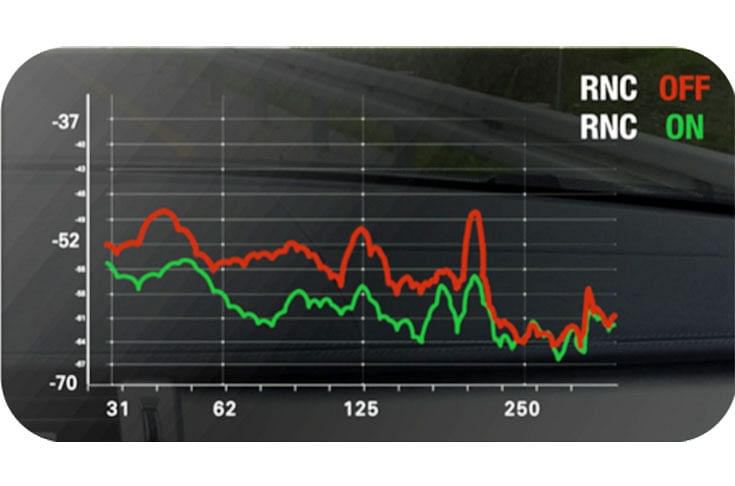Genesis GV80 first car to feature Harman-Hyundai’s road noise cancellation system
The RANC system brings together the expertise, R&D capacities and IP patents of Harman's Halosonic suite of noise management technologies.
Harman International, a wholly-owned subsidiary of Samsung Electronics, has launched the world’s first active road noise cancellation system for a production vehicle in partnership with Hyundai Motor. The Genesis GV80 SUV, that celebrated its global reveal on January 15 in Korea, is the first production car to feature the technology, which is based on Harman’s Halosonic suite of noise management technologies.
In addition to being the first vehicle with RANC, the Genesis GV80 will also incorporate other technologies from Harman’s Halosonic suite of sound management solutions. Focused on connected technologies for automotive, consumer and enterprise markets, the road-noise active noise control (RANC) system reduces the in-cabin noise level by cancelling out unwanted sound originating from the tyres and road surfaces while driving.
Road noise is compromising driving pleasure
As automobile makers race to fulfill customer demands like fuel efficiency, stiffer suspensions and wide low-profile tyres, these measures also result in unwanted noise to be transmitted through the structure of the vehicle, ultimately creating a ‘droning’ sound inside the car cabin that is both distracting and tiring.

According to a study commissioned by Harman, end users reported that road noise was the biggest auditory distraction for drivers in the car. But applying conventional, passive noise, vibration and harshness (NVH) methods to reduce this intrusive noise significantly adds to the vehicle weight with a further negative effect on fuel economy and carbon dioxide emission levels. This new RANC system is built to control sound and noise in the vehicle together. Debuting on the Genesis GV80 SUV, the system actively reduces noise in real-time by emitting soundwaves inverted to the incoming noise.
How it works
The RANC control processor uses reference signals received from acceleration sensors placed strategically along the suspension and chassis to predict noise transferred into the cabin and to generate an anti-noise wave in real-time. Compute time and signal transfer speed are optimised to allow for an analysis of the intruding noise and the generation of the anti-noise within milliseconds, thereby preventing the noise from reaching the occupants’ ears. Error microphones constantly monitor the system performance in each seat location to ensure a more pleasant ride for all vehicle occupants.
The RANC system brings together the expertise, R&D capacities and IP patents of Harman's Halosonic suite of noise management technologies.
RELATED ARTICLES
Autoliv Plans JV for Advanced Safety Electronics With China’s HSAE
The new joint venture, which is to be located strategically near Shanghai and close to several existing Autoliv sites in...
JLR to Restart Production Over a Month After September Hacking
Manufacturing operations at the Tata Group-owned British luxury car and SUV manufacturer were shut down following a cybe...
BYD UK Sales Jump 880% in September to 11,271 units
Sales record sets the UK apart as the largest international market for BYD outside of China for the first time. The Seal...






 By Autocar Professional Bureau
By Autocar Professional Bureau
 03 Feb 2020
03 Feb 2020
 10281 Views
10281 Views








 Ajit Dalvi
Ajit Dalvi




